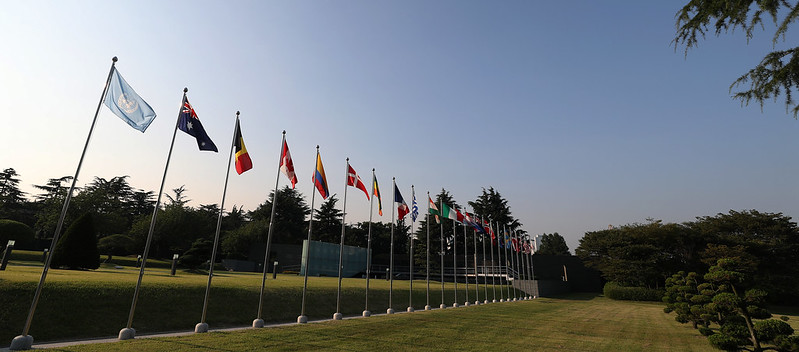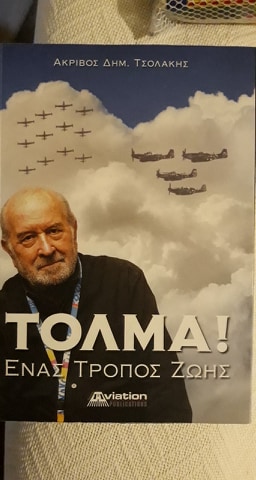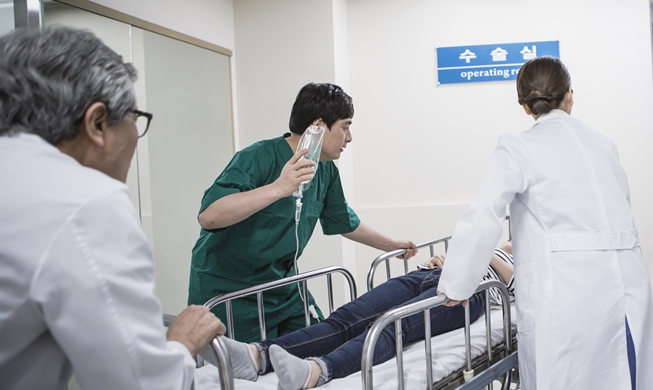By Honorary Reporter Dovletoglou Eftychia from Greece

The United Nations Memorial Cemetery in Korea (Korea.net DB)
Greece sent 4,992 soldiers and pilots to defend the Republic of Korea during the Korean War. A combined 738 Greek soldiers were killed in action during the war. On the 60th anniversary of the war's outbreak in 2010, a monument in Yeoju-gun County (now the city of Yeoju), Gyeonggi-do Province, was erected to honor them.
Almost 70 years have passed since the war erupted and few Greek veterans of the war survive. One of them is Akrivos Tsolakis, a former pilot in the Hellenic Air Force who later worked in civil aviation and once served as chairman of the Hellenic Air Accident Investigation and Aviation Safety Board.
Decorated by the governments of Korea, the U.S. and Greece for his service, Tsolakis shared his Korean War experiences in a phone interview, excerpts of which are below.

the book written by Akrivos Tsolakis (Dovletoglou Eftychia)
How did you feel when invited to serve in Korea?
I was only 20 years old, a graduate of Hellenic Icarus School. I went to the U.S. for military air training with five other comrades. My feeling about going (to Korea) was pleasant then, as I didn't think about the danger but was more excited about the adventure. Back then, we didn't know anything special about Korea. We'd only seen the country on postage stamps.
When did you go to Korea and how long were you there?
I went with the second military force sent by Greece in spring 1950 and stayed there for 20 months, while others stayed there for three to six months. We also stayed there as pilot instructors.
Tell us about your missions.
The missions were organized by American forces, and the Greek air force took part in 160 of them. I had 1,200 hours of combat flying experience and was a commander. Each mission was dangerous and we had casualties; three planes crashed. Of the six Greek pilots who served in the war, only three returned home.
What were conditions like in Korea?
We set up our military base on a small island on the Hangang River and lived in tents. The conditions were very difficult. We faced poverty and bad weather. The cold reached minus 25C.
How has your life been since the war?
I'm still active and can enjoy the small things in life. Many of my comrades either didn't return home or did so with health issues. I used to earn a pension of EUR 1,700 but this has been cut to EUR 700. Thus it's harder for me to enjoy some of the things I used to, such as going to a restaurant once a month or seeing a play at the theater.
chaey0726@korea.kr
*This article is written by a Korea.net Honorary Reporter. Our group of Honorary Reporters are from all around the world, and they share with Korea.net their love and passion for all things Korean.
Most popular
- 2 Egyptian sisters reflect on 10 years as Honorary Reporters
- Actor Bae Doona's first romcom in decade to hit theaters in May
- Korea Welcome Week for foreign tourists set from April 25-May 16
- Korea.net welcomes 2025 K-influencers, Honorary Reporters
- Mini-exhibition brings Korean culture to South London town
